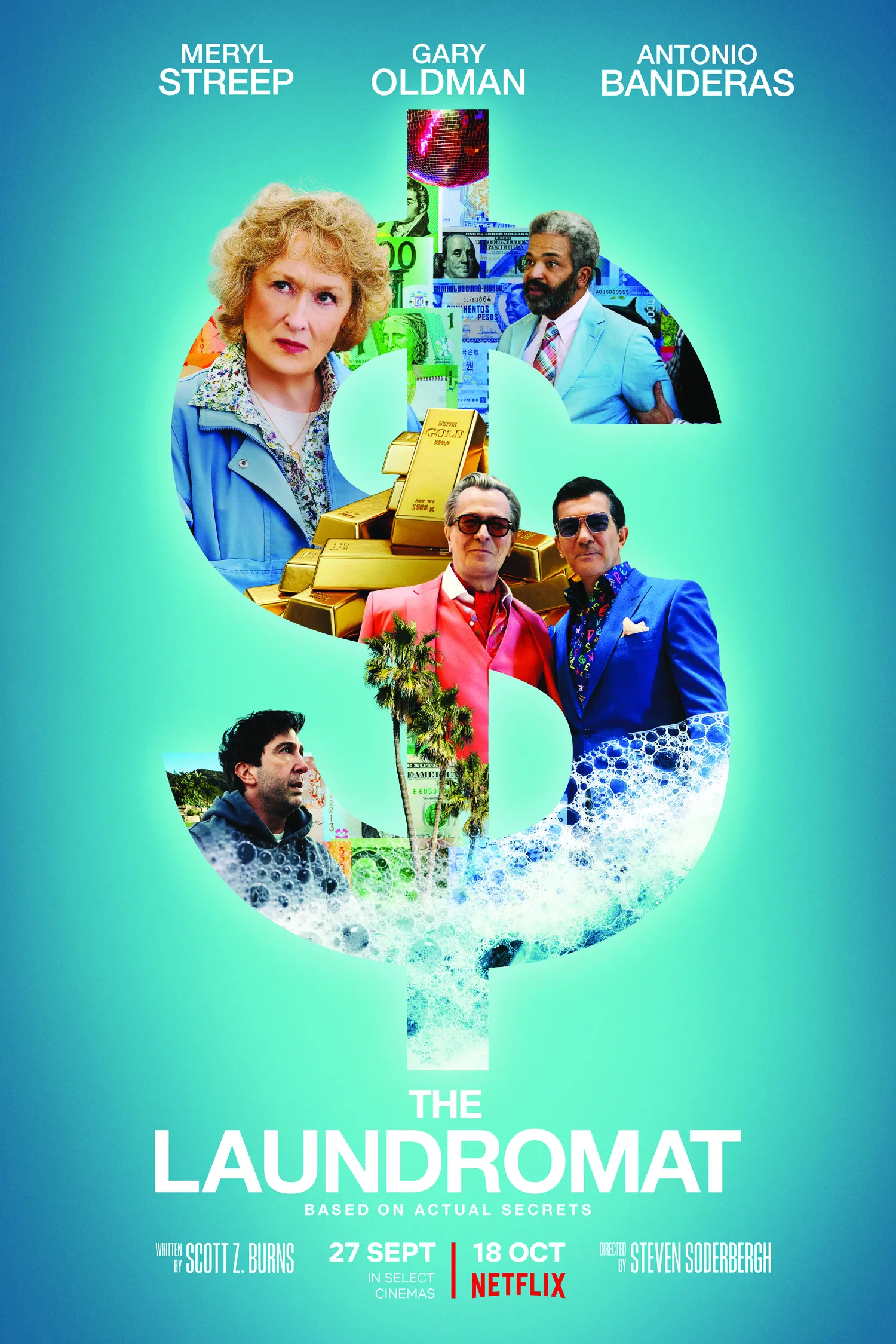When I first heard about Steven Soderbergh’s new movie on the Panama papers, images of future teary-eyed, inspirational Academy Award acceptance speeches and of the Titanic dramatically sinking into the Atlantic came to mind simultaneously. Unfortunately, all that was left to complete the illusion was “Nearer My God to Thee” playing as the credits rolled at the conclusion of “The Laundromat.”
The movie looked promising because Steven Soderbergh has directed an entertaining, well-crafted movie with a similar premise before (“Erin Brockovich”), also about an underdog fighting against the wealthy and powerful to hold them accountable for the way they treat the disenfranchised. Moreover, he was revisiting that theme with a story starring Meryl Streep as a woman seeking repayment for a boating accident that killed a number of people, including her husband, while uncovering a web of mechanisms for maintaining wealth among the 1%. The movie is a disastrous attempt to revisit the themes of “Brokovich,” peppered with inexplicable decisions throughout.
Gary Oldman and Antonio Banderas play our narrators, even though they seem to appear almost randomly in the story, right when one forgot they were even there. They play the leaders of Mossack-Fonseca (Oldman is Mossack, Banderas Fonseca), a company that owns a plethora of fake tax haven companies which ruin the lives of those that trust them. They gloat throughout the movie about their power and success, as well as their ability to live above the law. Their presence aims to fulfill some sort of macabre, unnecessary comic relief, as well as provide “Big Short”-style explanations of financial concepts. Yet, where “Big Short” found exciting and simple ways to explain complicated material, Oldman and Banderas come in to explain simple topics like “what is money?” with shockingly terrible acting choices (fair warning: Oldman’s German accent will haunt you for a few nights.)
The movie also painfully lacks focus — it leads the viewer’s attention in one direction before launching into a barely necessary story. The side-story ends up taking an amount of time utterly disproportionate to the effect it has on the overall plot. Moreover, these digressions ask the viewer to become invested in the lives of corrupt, immoral wealthy cogs in Mossack-Fonseca’s machine at the expense of continuing the story about the real victims of the company, like Meryl Streep et al. In addition, the film throws the audience back into the main story with little to no smooth transition and also asks the audience to continue to be invested in the central plot, which moves at a glacial, intermittently interesting pace and is constantly interrupted by fifteen-minute trips into a corruption scandal in China. It begs you to connect with all these characters while constantly turning them into silly caricatures. Moreover, it aims to make Mossack and Fonseca both charming and despicable, a careful balance that it does not handle well.
The tone of the movie is uneven and often inappropriately comical. At times it tries to be serious, yet it then soon slips again into painting the plight of the victims in a mocking light. For instance, in one of its long diversions, it launches into another digression explaining the Chinese state’s violence against the Falun Gong. At first, it takes a disturbingly comical approach, having the police come and pluck a member out of a meeting without anyone noticing, complete with another member making a double-take and shrugging it off. Then, it immediately turns into gruesome, gory images of how the Chinese government harvested organs from Falun Gong followers. One could simply shrug this off by saying that perhaps the story is colored this way because it is supposedly being told to us by Mossack and Fonseca, if it weren’t for its attempts at serious calls to justice, the most blatant one occurring at its conclusion.
The movie’s conclusion shows how justice has not yet been truly served on Mossack-Fonseca and other similar companies. It ends with a call to justice that is bizarre, especially when the movie mocks the victims of the wiles of Mossack and Fonseca. The ending feels cheap and forgetful that this is a real-world tragedy, as the person giving the speech concludes by raising a brush with which she was brushing her hair, as if it were a sword, another spit in the face of those who actually suffered at the hands of Mossack-Fonseca.
The film is one of a wave of upcoming Netflix movies with prestigious actors and Oscar bait-y plots; one hopes that quality will climb from here. Indeed, if the film had lived up to its promise, I would have recommended the viewer to have a box of tissues handy, in order to deal with sweeping emotions and touching pathos. Yet if you do decide to see for yourself, make sure to have access instead to “The Iron Lady,” “The Darkest Hour,” and “Tie Me Up! Tie Me Down!” in order to remind yourself of the talent of the film’s stars, so unapparent here.
Contact Juan Fueyo-Gomez at jfgomez ‘at’ stanford.edu.
